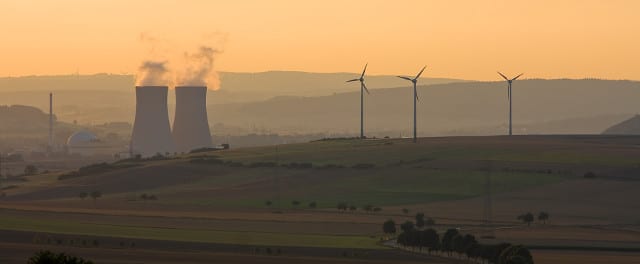With Tony Abbott gone, it has been more than just a slight change of tune on climate for the Australian Government. It has been the equivalent of skipping tracks mid-way through AC/DC’s Highway to Hell to Here Comes The Sun by The Beatles.
On renewable energy and climate change, Malcolm Turnbull sees opportunity where Tony Abbott saw only risk. The new PM’s pitch about embracing innovation and showing leadership is poles apart from his predecessor’s stubborn defence of the status quo.
So while the government’s core policies to encourage renewable energy remain the same for now, everything else is very different.
The world is looking hopefully towards the UN climate negotiations in Paris at the end of the year for a positive result, and the current view of the Australian Government is that they could be the most significant event of its kind since Kyoto. Of course, the theme song of the event may turn out to be more along the lines of the remixed Elvis Presley hit which starts: “A little less conversation, a little more action please”.
The danger of these kinds of high expectations is that anything less than a quantum leap forward will likely be regarded as a failure, as was the case six years ago in Copenhagen. The reality is that Paris won’t be a make or break event, but it could be an important demonstration of global momentum – and a chance to take stock of what individual countries are doing.
But Paris is already looking very different to Copenhagen. What is most important is the commitments that countries have already made, and will continue to make. And what is becoming abundantly clear is that the globe is heading towards a low-carbon future.
Decarbonising our electricity supply will be a key part of this process. The only question is how long that change is going to take.
Certainly the momentum has been helped by some of the world’s largest and most emissions-intensive economies making pledges and taking action to embrace cleaner sources of energy.
Since 1990, Germany has almost doubled the size of its economy while massively ramping up its renewable energy ambitions and cutting its emissions by a quarter. The chronic air pollution problems in China’s cities have made its transition to clean energy all the more urgent, and it is significant that one of the world’s economic giants has pledged to source 20 per cent of its electricity from sources other than fossil fuels by 2020. And while the United States has struggled to implement federal clean energy policies due to a highly partisan political environment, renewable energy continues to be rolled out across the country, with states such as California and Texas leading the way.
For Australia, our historical reliance on coal makes reducing emissions from our electricity sector both a big challenge and a big opportunity. On the upside, we have some of the best renewable energy resources in the world. Even the owners of our coal-fired power stations recognise the need for change and to modernise our energy fleet, given close to three quarters of our coal-fired power plants are either at or beyond their expected operating life.
Renewable energy such as solar power and solar hot water can help homes and businesses to dramatically reduce their operating costs. Combined with improved energy efficiency, this will provide Australian businesses with a much-needed competitive advantage on energy costs.
As our major trading partners and our new Prime Minister have come to realise, this inevitable transformation also provides an opportunity for economic stimulus, with short- and long-term job and investment benefits.
Power plants of any kind are major investments with a long lifespan, and now is the right time to start the long-term policy planning that will be required to allow business to invest confidently into the future.
According to the International Renewable Energy Agency (IRENA), more than 160 countries now have some kind of renewable energy target – four times the number there were in 2005. While the community’s views on climate change have shifted around a bit, measures to increase renewable energy are low cost and politically popular.
While Paris is just a stepping stone, we are hoping for progress on accountability and reporting, financing mechanisms and clear agreement on future reviews will be important to drive stronger commitments in the near future.
Unlike the lead-up to Copenhagen, almost every country in the world has recognised the benefits of modernising their energy system, and is moving with purpose to build renewable energy. So with a new Prime Minister calling the shots, there are many positive signs that the next track on the global playlist might just be Action Speaks Louder Than Words.
Kane Thornton is the Chief Executive of the Clean Energy Council









